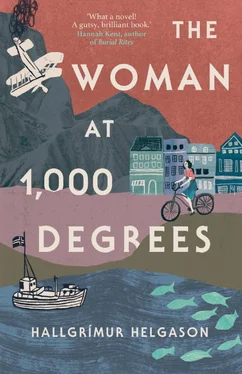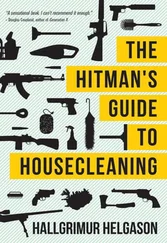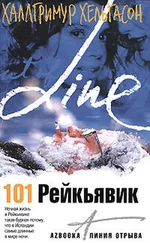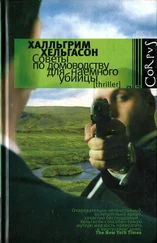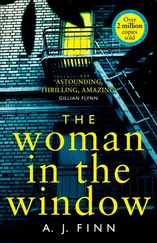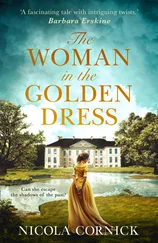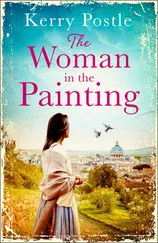‘I don’t like the look of that.’
‘Is that a real grenade? Is it live?’
‘I don’t know. Can’t we take it from her? Try again.’
‘I can’t remove it. It’s totally stuck.’
‘Mum! You have to…’
‘I don’t like the look of this.’
‘She’s clutching it so tight.’
‘Haraldur, let’s go.’
‘Has she had this for long?’
‘Her whole life, she says. But I never realised that it was…’
‘Maybe I’ll meet the Half Hitler… in the Lord’s court…’
‘Herra, dear? Herra?’
‘Maybe he’s a court jester, whole and handsome again?’
‘She’s gone.’
‘God Almighty.’
‘Can you get me a certificate?’
‘Huh?’
‘Lóa, dear, a death certificate. Can you get me a death certificate?’
‘But maybe it’s okay, then, since she’s had it for so long?’
‘I don’t know. It could still explode. See how she’s clutching it.’
Oh, oh, hold your sailor tight and then go to the ball, my dear island girl.
‘Mum, dearest, goodbye. Can I kiss you goodbye?’
Rain is pouring out of his eyes, wetting my old cheeks. I never knew his soul, and he never got any affection from me either. Life is too late, too late, now the abyss has opened and my son’s tears trickle down his mother’s weary path and how risible it is, but metal is good, to feel the metal of war is good, oh, his royal shyness, I live and now I die, I die like any other Arctic tern, no, look, now I’m sailing into the giant funnel of time, and look, there’s a sign saying sortie in French… They’re standing there with torches, the German soldiers, their flames reflected in the sewage…
‘Mum. Mummy, dear.’
…yes, and Eysteinn and Lína sit there happily, stroking their beards and smiling at the candle, they are mine, I had a weekly father and a monthly mother, and oh, a good old folk song echoes behind them, sung down a long dark corridor, it’s ‘Blessed Be My Countryside,’ and down there is twilight in a cup, with a coat of mould on it and whey in the window, streams in my chest, ooze with trickle, trickle with ooze, yes, wait, my dear mother, with the good barrel, God’s barrel with Satan’s whale meat, I slip into the bench and I look at the mainland mountains through the island windows and I mourn Iceland, because I never had anything but that, but the word, never the land, we all live on islands, yes, and nothing between us but the sea, that cursed sea, now the current of the funnel sucks my boat, I’m going swiftly now and what… it’s raining more now and the troll of tears sends me a kiss from the dark heavens and a shower of tears floods my cheeks and lips, tasting of salt, yes, tasting of salt, my salty son, now I’m sucked in, à dieu …
My eyes remained open even though they had been closed. Through my eyelids I could see everything that was to be seen and more. I had become all-seeing and all-knowing.
They sat around me and kissed my cooling cheeks, each in turn, and drew a cross over my body like slightly daft children, until Dóra invited them all into the house and put some coffee on. Then they called a priest and a doctor, who both discharged me in their own ways.
‘Her taxi is here,’ said Dóra on the kitchen threshold at midnight, slipping into her shoes, as the ambulance pulled into the driveway. Two members of Reykjavík’s emergency response team tried to pry the Hitler egg out of my clasped hands without success and then saw the scar etched on my right arm. This didn’t look good. An old woman is found dead in a garage, clutching a German hand grenade from World War II and sporting a swastika mark on her arm. It was like the opening to some third-rate crime novel.
They carried my body out into the blizzard and travelled cautiously down the deserted streets. They drove slowly over glistening-wet speed bumps, which I’d never noticed before but which are now to be found at every crossroads. It was a short distance to the morgue in Fossvogur. There my remains were put aside pending further examination.
Lóa kept her promise and demanded a cremation. And the reservation proved useful, Monday, 14 December at 1:30. In the morning an emergency team was summoned from the National University Hospital: a man and woman with a saw. Thus, I slid into a thousand degrees minus my hands and burned there for about half an hour. My phantom wrists still ache.
The clasped hands were handed over to the Coast Guards’ explosives division. A few days later, in a pre-Christmas mist, my father’s heart was blown up with dynamite in a sand ditch by Lake Raudavatn and thus delivered to God by my own two hands.
First and foremost, I thank the god of events, the one who brought Oddný Sturludóttir into my life and led her to politics, so that I would aid her in her 2006 election campaign: Here I was handed a list of phone numbers of all the residents of one random street in Reykjavík and told to call them and ask them to vote for the Social Democratic Party. The third person I phoned turned out to be an old lady living in a garage, Brynhildur Georgía Björnsson, and it was she who would become my great inspiration for this novel. I never met her in person (sadly she passed away a year later), but her brainy wit kept me on the phone for an astonishing forty minutes. After hanging up, I honestly asked myself why this woman was not a household name in Iceland.
I thank her, this woman at 1000 feet, in the sky above, and hope she is not too angry about all these words she inspired. (Although I did get a call from the south coast of Iceland, shortly after the book’s Icelandic publication, in which a rough-sounding sailor told me that the old lady had appeared to him in a session with a medium, and that she was ‘not amused.’)
I thank my Icelandic editor, Guðrún Sigfúsdóttir, for her good influence. Her point of view, quite often being very different from mine, was crucial to this story, and her hardest punches usually resulted in good chapters. I also thank my Icelandic publisher, Jóhann Páll Valdimarsson, for his belief and faith – and relentless optimism.
As Guðrún and Jóhann Páll happen to be a couple, I also thank their union, for they were the ones who early in 2009, when I – broken and beaten by my sudden divorce from the politician, and angry and confused by the political collapse of Iceland (all this happened in the same week) – invited me out to their summer house, cooked me dinner and put me to bed, only to wake me up with a wonderful walk and a yet more wonderful question: What will be your next book? I told them about the two ideas I was considering and they voted for the latter one, the story about the old lady in the garage.
I also thank my oldest friend, editor and publisher Páll Valsson, who has read all my books before publication. Valsson is every writer’s dream, an editor who always knows better than the author himself what he’s up to.
My dearest Agla also gets her share of acknowledgement, the woman of all my degrees, the one I met, so to speak, on the first page of the book, and became a part of the whole project, reading versions, asking questions, and helping with details from a female perspective.
I am grateful to my good translator, Brian Fitzgibbon of Dublin, Ireland, who for decades has lived in Iceland and is always open to my suggestions.
For the long-fought publication of my novel in English I first thank my French publisher, Frederique Polet, at Presses de la Cité. It was her enthusiasm that brought the book to the attention of agent Molly Friedrich in New York. Soon after, on a cold and dark night in November 2014, when I was standing in front of the parliament building in Reykjavík, part of yet another protest, my phone rang and this bright and energetic American voice said ‘Hi!’ It even managed to cut through all the heavy drumming and shouting, as every agent’s voice should do.
Читать дальше
